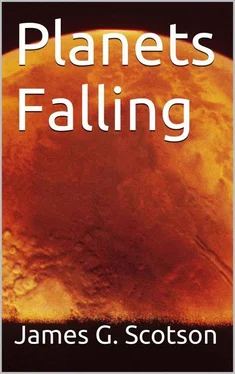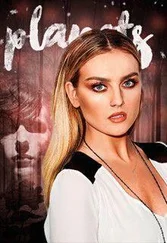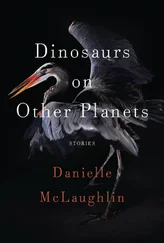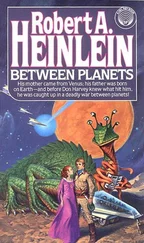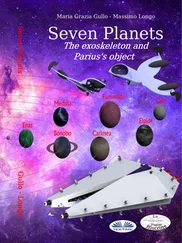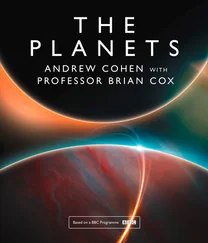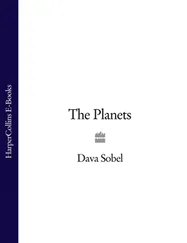Sarah and Maggie glanced at Adam uncertainly.
He shrugged. “Mom and Holst? No way.”
Heldren reappeared, her skin thin as rice paper. She faded further in those few moments. A small, black puck weighed heavily in her hand. “This is the interface to the cameras. The images only record when the locks are being used; the cameras have high compression. They may still be recording to this day. Remarkable technology. Shame to see some nasty bioengineered slime eat it all up.” She handed it to Adam. “I really do wish you the best of luck.”
Heldren faded in the doorway. Adam began to believe that Holst and his mother had a complicated history.
Holst brought young Ferris to the cavern a few days after she arrived on mars. All was darkness and then light. She was raised in a small village in northern North America, far away from the sprawling cities. The sky was always so crisp; the tradewinds wound through the forest from the ocean, embracing her in a blanket of brine — the exhalation of life itself. The cavern had no wind. Mars had no ocean. But she would conjure up the very essence of life in those depths.
Light was the first brush stroke on her canvas. The generators thrummed and the artificial plasma panels shone with solar brilliance. With cells and water and her very own breath, she would bring this world to life, even as the one she left was quickly dying. She knew this by the very smell of the ocean during her last day on earth. Stepping on that transport to mars was the worst decision of her life, but the only viable one. The wind on earth was becoming dull, lackluster. Decay assaulted her nostrils. There was no looking back. She would be the center of it all — a new garden, a novel opportunity.
While she extracted the best from all the brilliant minds around her, she found herself slowly spinning around the one that had empowered her. Holst was the provider, the enabler, the critic, and the goad. He wasn’t too bad to look at either. He grasped what was deep inside her and pulled it out so that it could bask in the sunlight and thrive. As the cavern began responding to her whims, she lost track of time and space. Was it days or perhaps months she spent in that underground playground bringing her world to life? When she momentarily rose from the mist, Holst was there to provide what she needed.
One afternoon she stopped to rest. She closed her eyes and inhaled. She swore the ocean breeze had traveled across the void to greet her once again. Childhood was hers for so fleeting a moment. When she opened her eyes, she found herself no longer falling toward Holst but spinning freely on her own.
Adam had recently been born. Pinchot escaped the cries of her tiny son, leaving him in Jon’s able care, and was now awash in her element. Although she enjoyed the company of others and adored her family, she relished her time underground with the life — her life. The set of caverns on the planet served as replicates. As the caves converged or diverged from one another, she learned new and intimate things about the necessities of creating a secure, efficient ecological system in an inhospitable locale. Years passed in those caves as her tiny boy learned to roll, walk, and talk. Jon was present for these events. She was not.
Pinchot was working late one night in a remote underground ecosystem in the southern hemisphere of mars. Jon and Adam, who was now just five years old, were traveling earthside to meet with Jon’s uncle. The uncle was old and one of the last remaining Fuersts. It was time for Adam to realize that he had a bloodline that extended beyond the red planet. She wasn’t lonely. She had all that she needed in the soil forming beneath her feet. After all, there was a bit of Jon in it.
In this southern cavern, once a remote outpost during early mars exploration, she noticed that the algae, moss, and lichens occupying the space were acting strangely compared to those encrusting her other subterranean units. Magma created deep in the crust of the planet was very close to this cave. Warm, nutrient rich water bubbled from springs and was far superior to the manufactured water in most of the other caverns. She collected several samples and sent them to the microbiological labs. Within a day, her colleagues sent her some intriguing results. The microbes in the martian water were unique and very likely of unearthly origin.
When Adam and Jon returned, she found herself wanting to keep the discovery secret. The microbiologists inquired about the organisms but she reported that they had disappeared. She’d certainly provide the scientists with more samples if she found them. It was clearly a lie, but who was to question her? She found herself spending more time than necessary in this particular chamber. Strange things were happening. Lichens began glowing dimly. Algae were growing where no light penetrated, a feat impossible for photosynthetic creatures. An unprecedented merger was occurring between organisms from two planets. And then, there were the dreams.
Pinchot was a napper. She never slept a full night. Rather, she stretched out in a still spot either in her offices topside or on a clump of moss or grass in an underground lab and tumble into slumber. Her dreams were always vivid, occupied by all the smells, colors, and sounds of the world she wanted to make.
When she slept in this unique chamber though, her dreams diverted toward a darker but compelling place. Images and voices clung to a greenish mist. Some she recognized as friends and family long gone. Others were anonymous faces peering at her with serene countenance. Most troubling were the children, especially the grinning young boy who she recognized as a victim of the breach event. She’d known his mother, a talented chemistry teacher. The grief hung on that woman for years. The woman and her family eventually wandered back to earth, leaving a hole in their chemistry faculty and a twist in Pinchot’s gut.
When the figures began appearing during her waking moments, Pinchot suspected something was very wrong biologically or that she was losing her mind. She sampled the air and the water. The usual mixture of gasses and molecules were there, so she was not being poisoned by a chemical exhalation of one of the new life forms taking hold. Her mind seemed sound. No magical mystery tour for Ferris. The images, breathless words, and cold touches of the ghosts never appeared in her other experimental chambers or aboveground. She was convinced that whatever she was encountering was real and that it was related to the life evolving in the cavern.
Adam was seven when she made contact with one of the others. She was taking oxygen readings near a small pool of martian water. A hand, nearly solid, reached out of the liquid and touched her wrist. She dropped her computer and then saw or felt — it was difficult to process the sensation — a day on earth. Smoke snaking its way between ruined, cragged trees. Clouds, acrid and dull, wisped in fetid wind. The soil was cracked. No life. It was whispering. No life. She realized she was not experiencing the past but seeing a future. A future for earth.
She slipped from reality and floated in a world without substance. Light, sound, taste, touch — they all were mixed. Memories and premonitions were as substantive as the sun or the stars or the martian dust. At this moment, she knew that she was chosen. She needed to act. But not now. She would know when.
The next day she returned home to colony 1. Jon could sense a change in her. Not physical. She seemed her cheerful, somewhat spacy self. But he felt as if something had changed in her spiritually. If he didn’t know better, he would have sworn that she was glowing ever so slightly. Of course that was a trick of the light, how the sunshine and lamps reflected on her skin.
Читать дальше
